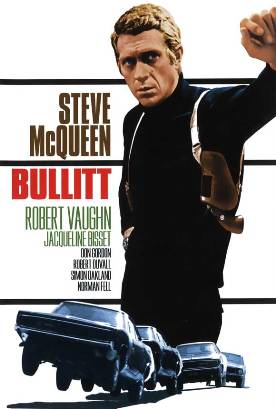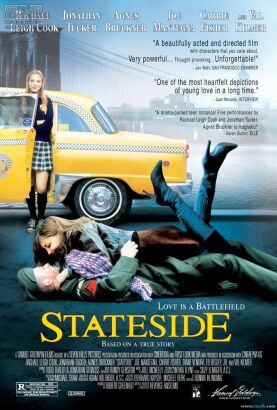Together (Han ni zai yiki)
Like textiles and electronics parts, the four-handkerchief weepie is hardly made domestically anymore. If you want one you have to import it from some third-world country where life is hard, labor is cheap and the movie business is still primitive enough to be capable of genuine feeling without the overlay of irony and cynicism it invariably gets in Hollywood. And just as China bids fair to be a world center for the manufacture of textiles and electronics parts, so its film industry looks like being a world-beater in the production of old-fashioned sentimental melodramas.
The evidence is there for all to see in Together (Han ni zai yiki), directed and co-written (with Xiao Lu Xue) by Chen Kaige whose Farewell My Concubine and The Emperor and the Assassin were not so deliberately targeted to the popular audience that Together ought to find. The film tells the story of a thirteen-year-old violin prodigy from the Chinese provinces, Liu Xiaochun (Tang Yun), who is taken to Beijing by his father Liu Cheng (Liu Peiqi), a cook, in the hope that there he will become an international superstar. But the familiar story of the stage parent is given new life by the magnificent performance of Mr Liu in the role of dad, who is regarded as “too peasant” by the sophisticates of the capital but whose unaffected and whole-hearted love for his son, and whose willingness to sacrifice everything for him, blows all the rest of the carefully constructed drama off the screen.
Nor is young Xioachun given the obvious part of the spoiled darling who first learns to be ashamed of his father and then to appreciate him. Instead, he is equally lovable, learning from the old man’s example to love and make sacrifices of his own. Even Lili, the prostitute with a heart of gold played by Chen Kaige’s real-life wife, Chen Hong, hardly seems a cliché in this context but is entirely believable as a woman who has taught herself through hard experience just exactly how much in the way of genuine feeling she is able to afford — and who then overspends her limit.
There is a certain loss of focus in the film’s portrayal of Xiaochun’s first Beijing teacher, Professor Jiang (Wang Zhiwen), who is a rather painstakingly realized character allowed to drop out halfway through, as Chen Kaige himself steps into the role of the more successful teacher, Professor Yu. There is a marvelous moment where Mr Liu with his peasant directness asks Professor Jiang: “Does Xiaochun have a future?”
The professor replies that it depends on what he means by a future. “Do you mean fame and fortune or consummate musicianship?”
Without a moment’s hesitation Mr Liu answers: “Fame and fortune.”
Ah, says Jiang, this cannot be guaranteed.
“In that case, I quit,” he says, and takes the boy off to Professor Yu, who doubts his pupil’s — “I sense the danger in too much too soon” — rather than his own powers. Yet both teachers teach the same lesson, which is the same lesson they would have taught in any American movie of half a century or so ago, namely that the key to success for a violin virtuoso is the ability to project real feeling. They might have added that it is also the key to success in the movies.
Master Tang, the boy who plays Xiaochun, is a real-life violin prodigy whom the plot requires to choose between the fame and fortune his father wants for him and his father himself. Thus he post-modernly gets to be both violin virtuoso and movie star in one and to get the credit for giving it all up for dad. It’s as hokey as all get-out, of course, but hokey in the way that the great Hollywood weepies used to be — which, you can’t help thinking, is what movies in general really ought to be.
The final scene intercuts Xiaochun, the tears streaming down his cheeks, playing the finale of Tchaikovsky’s D-major violin concerto with an invisible orchestra for his father and a scratch audience — including Lili and Professor Jiang — in the train station while Lin Yu (Zhang Qing), Xiaochun’s vanquished female rival and fellow pupil of Professor Yu, to whom he has abandoned the field, takes his place and plays it with the orchestra in the concert hall. It’s all shameless schmaltz but shameless schmaltz is what the movies are made of — or what they used to be made of in Hollywood, before the curse of “cool” drove this and any other “too peasant” expressions of feeling from our shores.
Discover more from James Bowman
Subscribe to get the latest posts to your email.








